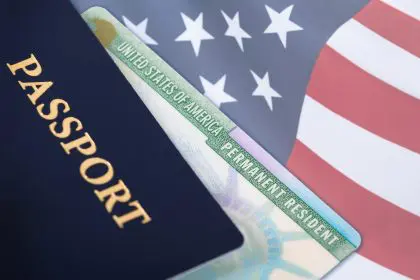Passport privileges are often taken for granted until they’re suddenly revoked. Each year, thousands of individuals find themselves unable to travel internationally due to various circumstances that lead to the loss of these privileges. Understanding the common reasons behind passport revocations can help you protect your ability to travel and avoid unexpected restrictions.
Legal troubles and passport rights
Legal issues are a primary cause of passport privilege loss. Courts have the authority to revoke or deny passports for a range of offenses, impacting individuals involved in ongoing criminal proceedings or those convicted of certain crimes.
Ongoing criminal cases: When facing criminal charges, especially felonies, courts may deem an individual a flight risk. In such cases, authorities can restrict passport access to ensure the person remains within the country for legal proceedings. Fleeing with unresolved legal issues can lead to more severe penalties and complicate the case.
Child support delinquency: Unpaid child support is another significant reason for losing passport privileges. In the United States, for example, passport applications can be denied if the applicant owes $2,500 or more in child support. This rule underscores the seriousness of parental financial obligations and serves as an enforcement mechanism to ensure payments are made.
Financial obligations and passport revocations
Money matters extend beyond child support when it comes to losing passport privileges. Debts to the government, particularly unpaid taxes or federal loans, can lead to passport revocations.
Tax evasion consequences: Individuals found guilty of tax evasion or failing to pay substantial amounts of back taxes may find themselves unable to renew or apply for a passport. This measure ensures that people meet their financial responsibilities before enjoying international travel privileges. Many are caught off guard by how deeply financial issues can affect something seemingly unrelated like passport privileges.
National security concerns
Governments may revoke passports for reasons related to national security. In certain cases, individuals involved with terrorism, espionage, or other activities considered threats to public safety may have their passport privileges permanently revoked.
Suspected terrorism or espionage: If an individual is flagged for terrorism-related activities or espionage, the government may act swiftly to revoke their passport. This measure prevents individuals from leaving the country and engaging in activities that could harm national interests or endanger others abroad.
Immigration violations
For some, passport privileges are revoked due to immigration issues. Violating immigration laws in another country can result in passport seizure or cancellation. These violations can include overstaying visas, illegal entry into a country, or involvement in human trafficking operations.
Overstaying visas: Overstaying a visa can have serious consequences not just for your standing in that country but also for your passport. Some nations communicate these violations to the individual’s home country, leading to issues when it’s time to renew the passport or apply for a new one.
Administrative oversights
While less dramatic than legal or financial reasons, many people lose their passport privileges simply because they fail to renew their passports in a timely fashion. Passports have expiration dates, and ignoring them can leave travelers stranded.
Expired passports: This is one of the most common problems travelers face. While it may seem like a simple issue to fix, trying to renew a passport on short notice can be a daunting process. In some cases, especially if the individual has pending legal or financial obligations, the renewal process may be denied, leaving them grounded indefinitely.
Protecting your travel rights
To ensure you don’t lose your passport privileges, stay aware of the factors that can lead to revocation and address potential problems proactively. Whether it’s keeping your legal record clean, paying your debts, or renewing your passport on time, these measures can go a long way in preserving your right to travel.
Stay informed about obligations: Ensuring that your financial and legal obligations are in order is one of the most effective ways to protect your passport privileges. From paying child support to settling outstanding taxes, these commitments can significantly impact your ability to maintain a passport.
The value of passport privileges
Losing passport privileges can be a significant setback, especially if unexpected. Whether due to legal trouble, financial obligations, or administrative oversights, the reasons for losing a passport are varied and complex. By understanding these reasons and taking preventative action, you can better safeguard your travel rights and avoid the inconvenience and stress of unexpected travel restrictions.
Remember, a passport is not just a travel document—it’s a privilege that comes with responsibilities. By meeting these responsibilities and staying informed about potential issues, you can ensure your ability to travel internationally remains secure.
This story was created using AI technology.













